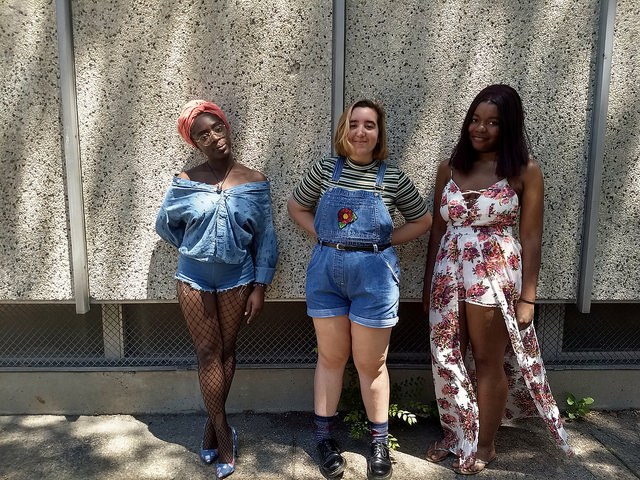As a new staff member at Philly Free School, I’ve begun to be asked the questions by adults outside the school community probably familiar to staff, students and parents here: “But how do the kids learn to read?”, “How do they learn to do math?”, “Do you teach them history?”
At first, I was excited to field these questions. They presented a challenge to provide brief, articulate explanations of how PFS works. They also provided an opportunity to subtly change the way we think about education. But as time wore on, and the similarity of my conversations became apparent, these conversations began to disturb me. They were painful reminders of the prevailing notions about education, learning, and human life.
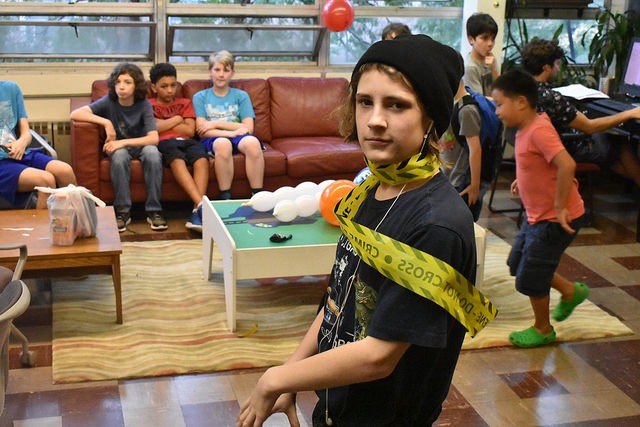 Marley at the worm party
Marley at the worm party
In several instances, people grew visibly angry as I explained myself and the school to them. It’s as if they were saying, “You cruel man and your lunatic co-workers, letting children be free. They play all day and are not prepared for the real world, the world of work. They will be failures! They will starve! They will be poor! They will be unhappy!”
It has now become a preoccupation for me during these exchanges to take notice of the questions not asked. To me, the questions not asked demonstrate how little our educational institutions value the development of a complete person, and how many of us adults internalized these value systems during our schooling.
So these days, when I want to break out of the confines of the same old conversation about “how do they learn to read?”, I try to seize the conversation and shift its direction by mentioning how strange it is that most people never open with questions like “how do the kids learn to have self-confidence?” It works well and often elicits a confession from the person who you are talking with about how they don’t use or remember most of what they learned in high school anyway. Now we’re talking!
I’ve since deployed several other ‘counter-questions’ in this way and I’ve listed several possibilities below. Perhaps they will be useful to you with adults who want to trap the conversation in “how do they learn how to read?” What stands out about this list is that Philly Free School, and schools like it, are uniquely designed to address these questions, and that these are the kinds of questions worth asking about ourselves, our lives, and our world.
How do they learn to advocate for themselves?
How do the kids develop self-confidence?
How do they develop self-esteem?
How do they learn to self-evaluate?
How do they learn to engage and resolve conflicts?
How do they learn to cooperate in groups?
How do they learn to care for others?
How do they learn what responsibility is?
How do they learn to take responsibility?
How do they learn to be members of a community, a family?
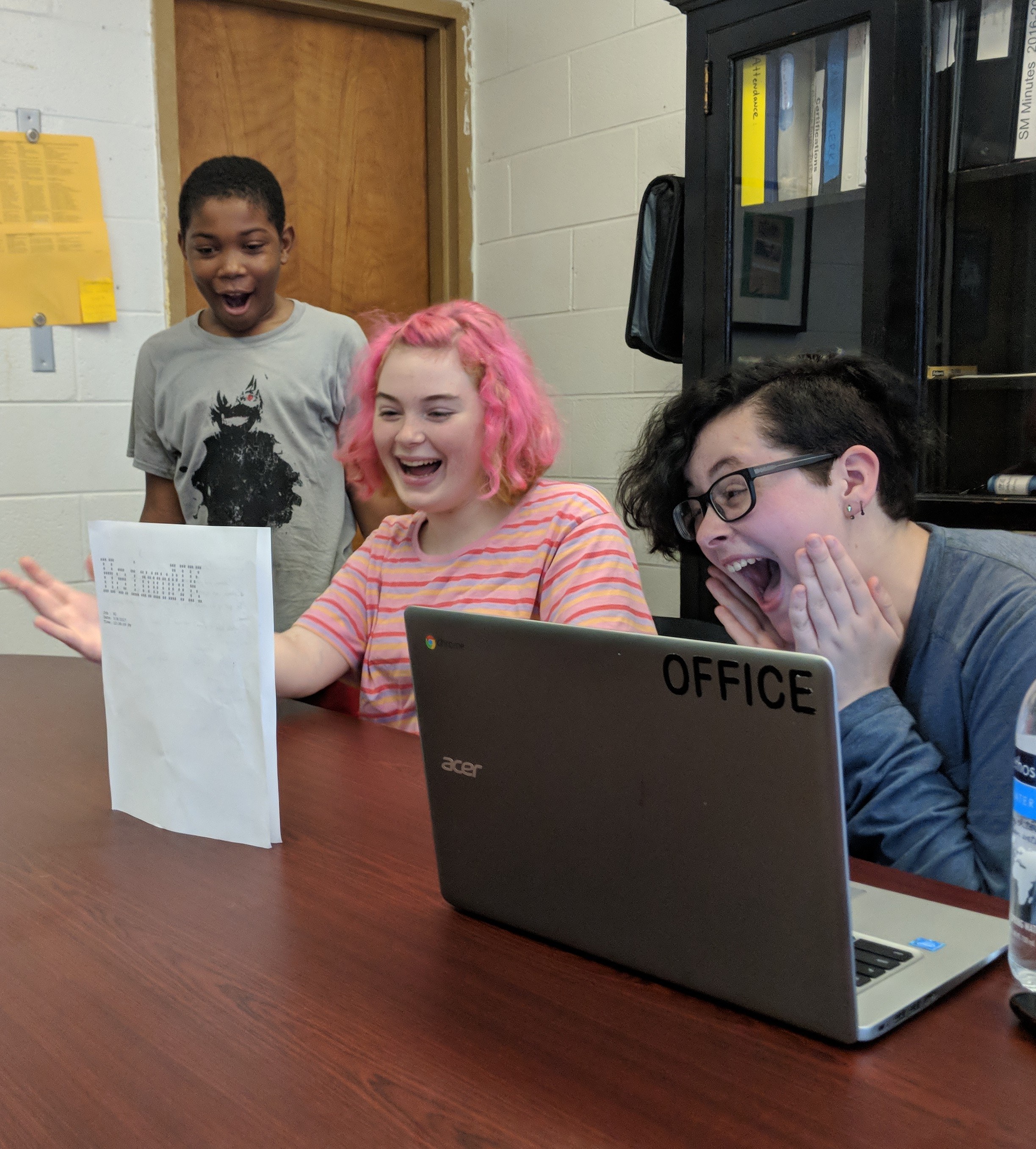 Judicial Committee in action
Judicial Committee in action
How do they learn to articulate themselves?
How do they learn how to fail?
How do they learn how to succeed?
How do they learn how to learn?
How do they learn what they want?
How do they learn who they are?
How do they learn what freedom is?
How do they learn how to protect and maintain freedom?
How do they learn how to practice freedom?
How do the kids learn to be free?
What does PFS look like to those who are on their way onward and upward? Among the teens that are moving on to adult pursuits at the end of this school year, Blythe Bloom and Jabrea Reid shared some of their reflections on this with me. What follows are some highlights of those conversations.
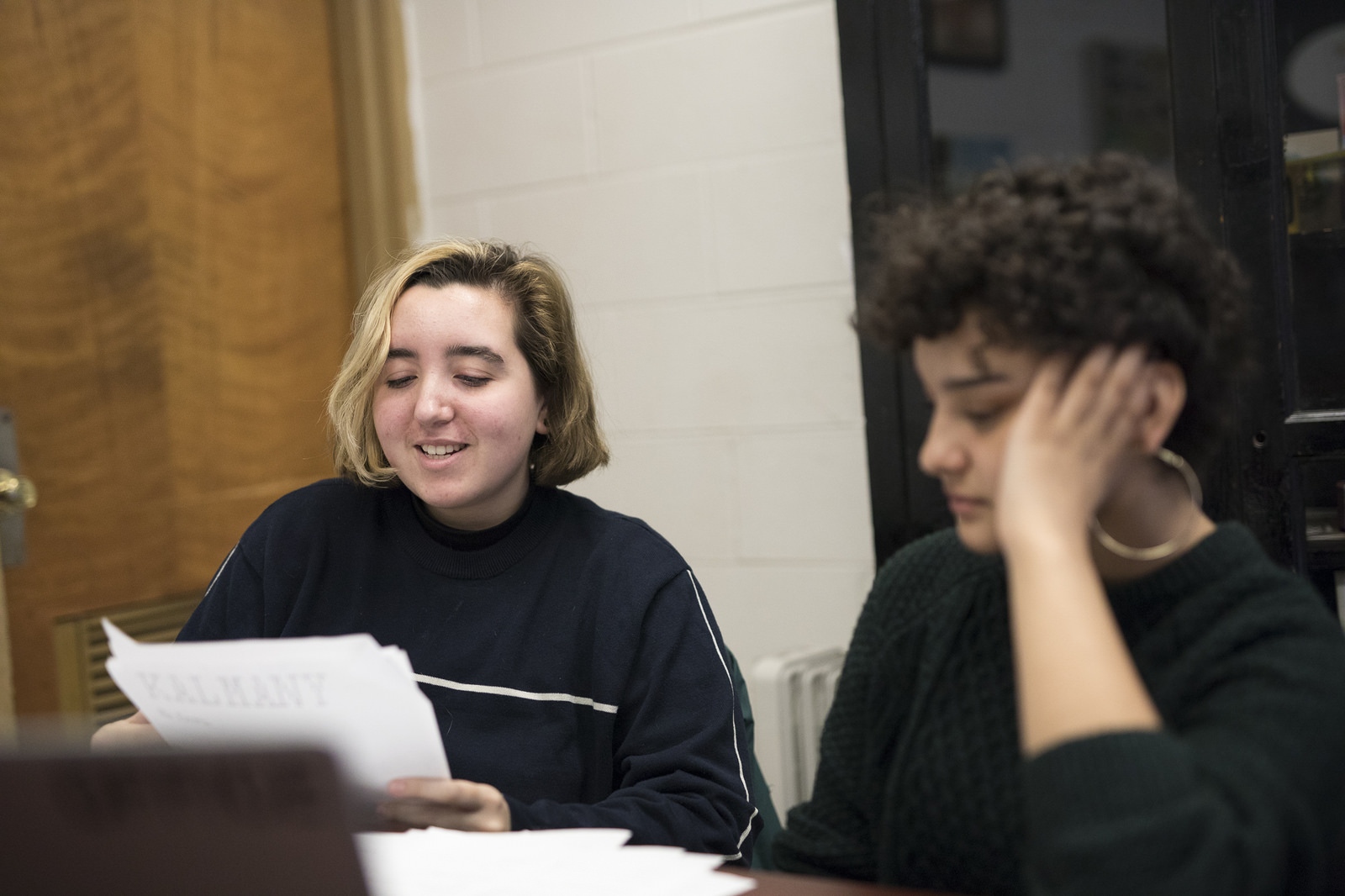 Blythe training a new JC Clerk
Blythe training a new JC Clerk
Blythe is looking forward to what’s next. She says, “I’m excited to grow outside the community and for the community to grow outside of me, and to take all the skills I got here and use them.” When asked what some of those skills were, she summed it up with, “Getting to know myself. I was shown a different way to live life.” Although Blythe is heading straight to college from PFS, she plans to use the experience in her own way, knowing that she can take time off and explore rather than staying for four straight years. She is confident that she will take her voice and her leadership with her into whatever lies ahead: “I’m excited to use my voice more in situations where people might not think they are allowed to speak, and I will, and to use it to be a leader.”
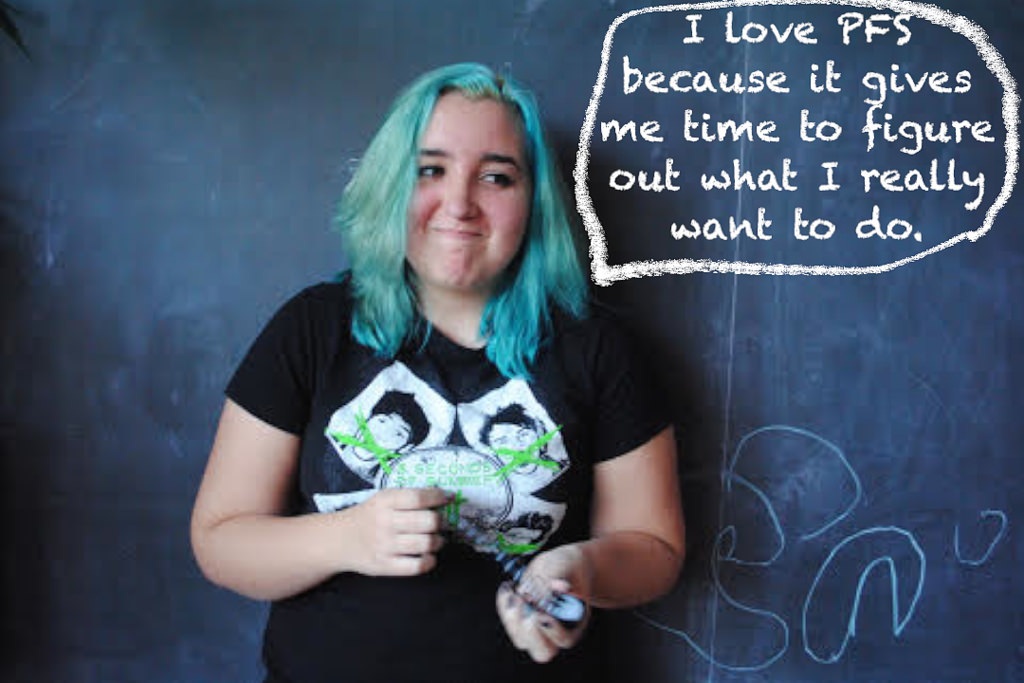 Blythe's reason for loving PFS in 2015
Blythe's reason for loving PFS in 2015
Blythe acknowledges that being at PFS wasn’t always easy. The hard parts? “Being in a true democracy and realizing that even if you really want something, not everyone will agree with that. Also, learning to coexist with so many different types of personalities in a small space. Understanding that it isn’t a perfect system here.” Over the past four years, Blythe came to rely upon herself to direct her own learning, and to manage the regrets that can come from that. “It was hard, after the fact, to see that there might have been a different way to do something, but I didn’t think of it at the time. It’s part of the frustration of realizing that when something doesn’t go right, I am responsible. We are held accountable here. There aren’t grown ups who will fix things for us.” If she had more time to spend at PFS, Blythe says, “I would spend more time learning piano.” Looking back, she also feels that she was slow to grasp that she could have used the world as her classroom: “I didn’t realize that I could take time off and still be enrolled here. I would have done more internships, more Sudbury school visits, etc. I would have recognized that the world doesn’t stop spinning if I’m not in the building.”
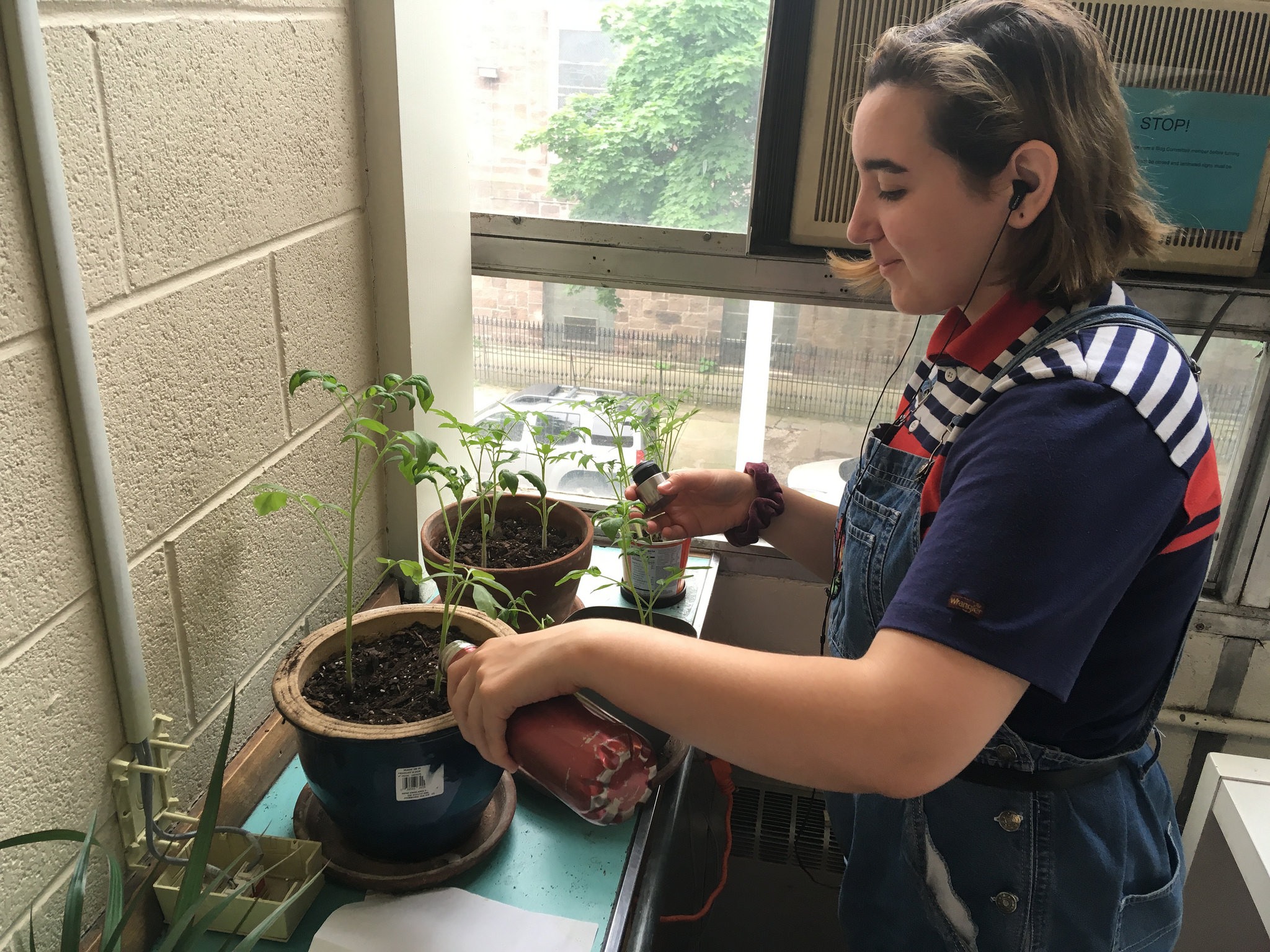 Indoor Gardening at PFS
Indoor Gardening at PFS
Her advice to a student considering enrollment is that, ”It’s not an easy place to be. If you really want to get the benefit from the full program, you have to be involved.” To parents, she simply says, “It’s worth it in the long run.” Of course, the flip side of all this responsibility is the freedom that PFS provides. The best parts, for Blythe, were “Getting to do whatever I want, definitely! Knowing that you actually matter here. Everyone is important. You feel that sense of belonging. You get a say.” As she moves on, Blythe hopes that she will be remembered as a pioneer. She arrived when the school was only 3 years old, and there were very few teen girls. Blythe carved her own path out of the PFS experience, choosing to take on significant clerkships at school while managing jobs, community college classes, and applying to BA programs. She even arranged a trip to a Sudbury school in Washington state. For more about these adventures, read her thesis, “Time to Think” here.
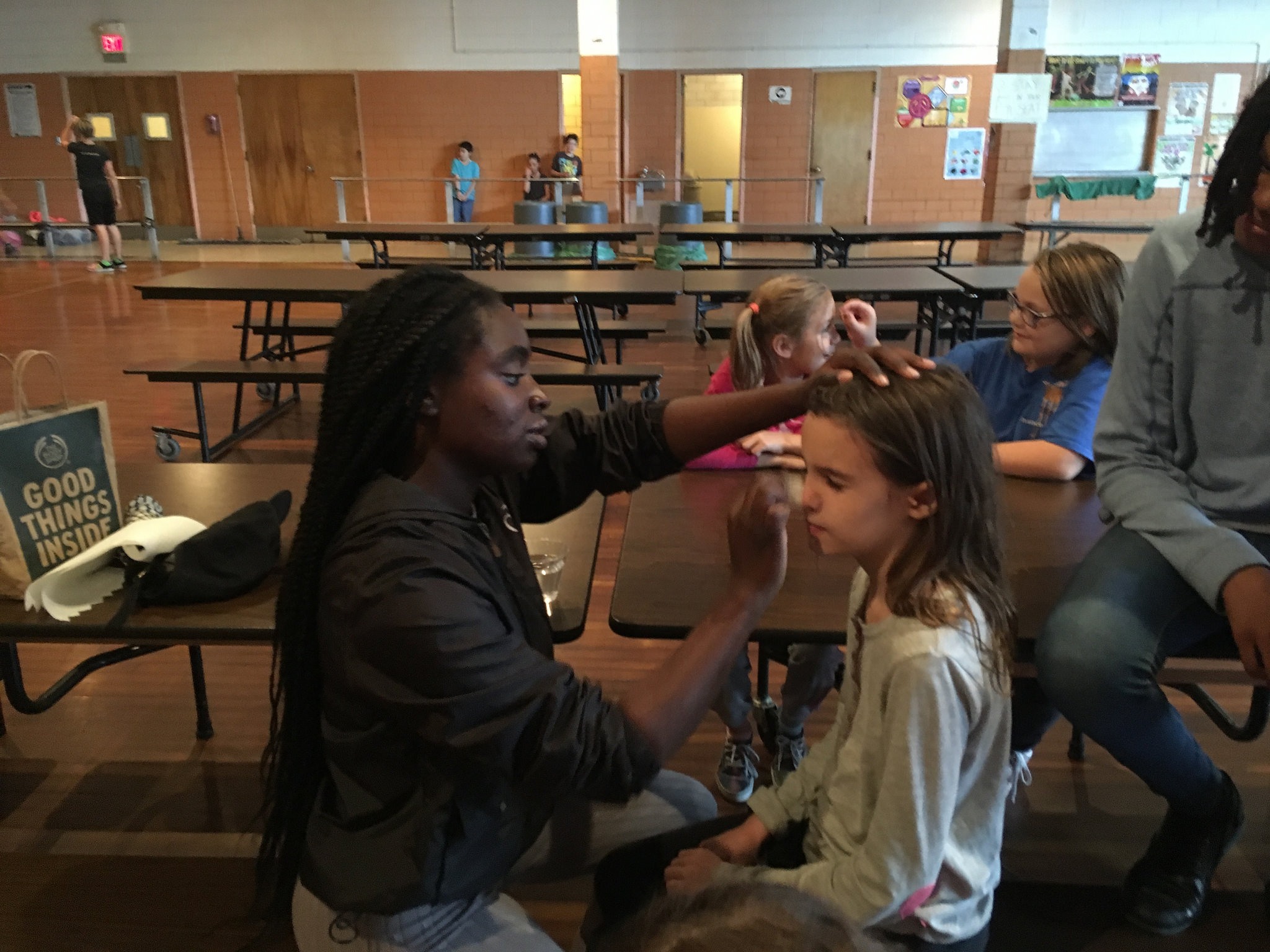 Jabrea the make up artist
Jabrea the make up artist
Jabrea arrived at PFS at age 16, from a very unsatisfactory school experience. When she looks at the time she spent here, she knows she learned some important lessons about life: “Now I definitely feel like an adult. A big part of it is being able to provide for yourself and fend for yourself, but another big part of it is being able to interact with society. Not just taking care of yourself physically, like eating and exercising, but also spiritually. If you get too caught up in getting the cash and the latest gadget you really neglect a lot of personal care. I learned a lot of different things about what it means to be an adult.” Much of her growth was interpersonal. Being in a shared, self-governing space taught her much in this regard: “Before, I wouldn’t listen to anybody else’s view if it didn’t coincide with mine. Now I can just say ‘Ok, well, we’re never going to agree, but I don’t want to ruin this relationship.’ The other person can still be a valuable resource or friend.”
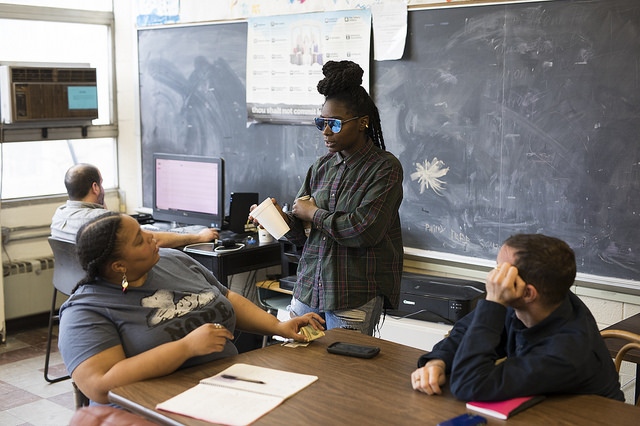 Jabrea keeping it real with PFS staff
Jabrea keeping it real with PFS staff
Jabrea also feels she has strengthened her verbal skills: “I’ve learned to argue really well because of School Meeting and participating in committees and all that. I speak my mind a lot more now.” Never shy to share her opinions, Jabrea says that PFS helped her to communicate them in a way that could be received. One of the biggest challenges of being at PFS was “Trying to navigate relationships. I’ve never been able to create a professional relationship with an adult before, so that was a challenge. Even though I can string together sentences well enough, I want to be able to be on equal footing with the adults here, because you have the ability to do that. But from my standpoint, I don’t have the same well of knowledge that you all do, so it was hard to keep up with the conversations.” Jabrea’s insightful ability to recognize these challenges and navigate them are some of the things we will miss about her when she leaves.
Like Blythe, Jabrea says that one of the best parts of being at PFS was “Getting to do whatever I want, obviously!” She also appreciated the warm reception she received here: “Since I am this strong, stubborn, pig-headed person, a good part for me was people being accepting of that. People here try to be understanding of my personality. And I trust that if anyone has a problem with anything that I say, they won’t get super upset and try to fight me, like they did at my old school.”
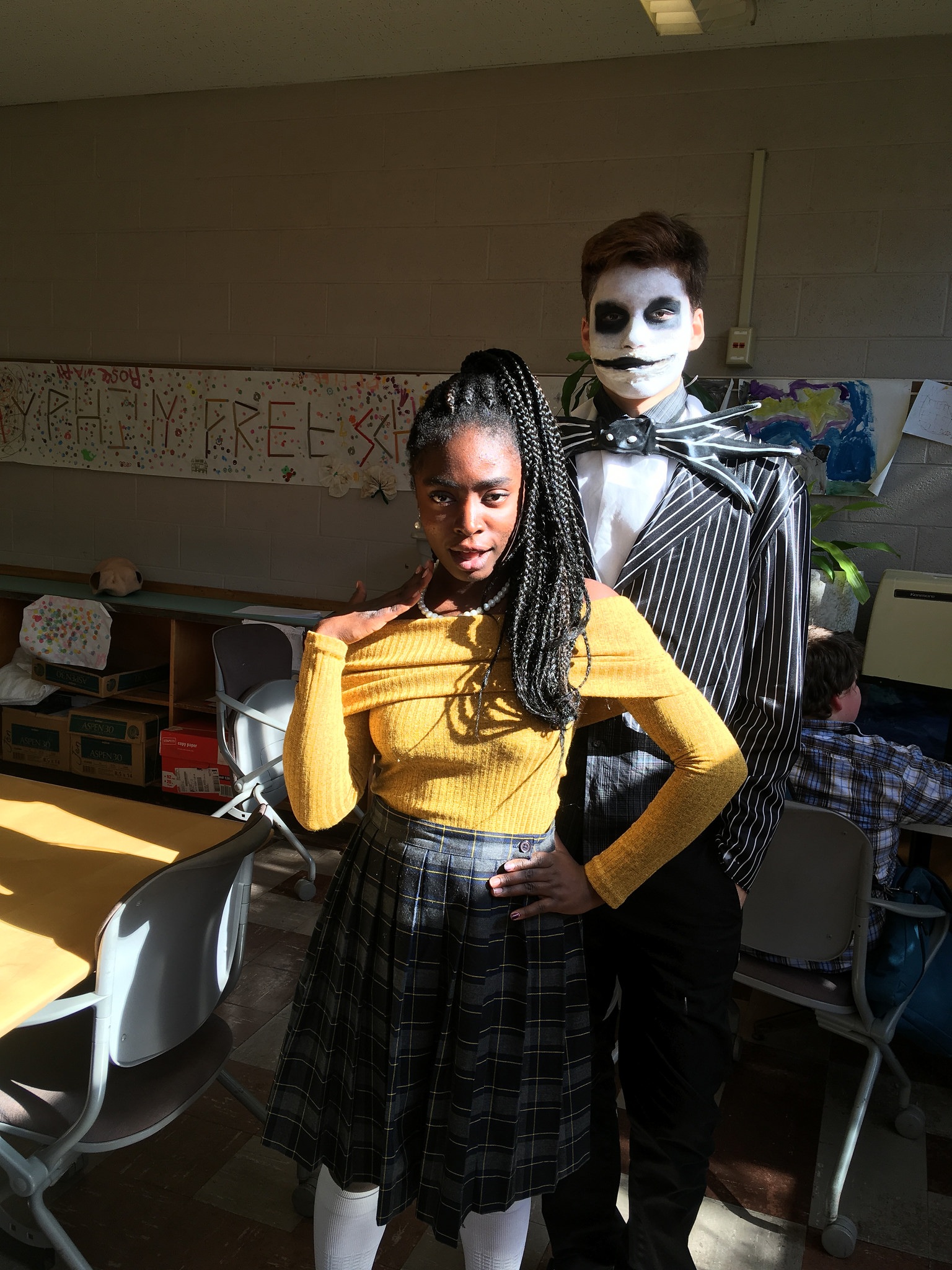 Halloween 2017
Halloween 2017
In her short time here, Jabrea shared her skills and insights in several ways, including as JC Clerk and on the Staff Hiring Committee. Looking back, she says, “I wish I had gotten a little more involved, but I wasn’t interested in that stuff when I first got here. I thought it was boring, but now I see how fun it is to have power-- to have people listen to you, even when they disagree with you. I wish I had done that sooner.” If Jabrea had more time to spend at PFS, she knows what she would do with it: “I would put more time into learning languages. I wanted to learn Mandarin and Spanish, and I was doing it, but then I stopped. I also wish that I had continued doing mindfulness meditation. That’s definitely something that I need to practice.”
Jabrea’s advice to students considering enrollment is to listen to their own inner voice: “Think about the things that you think you need, or want. Always keep those in mind and use them as you try to make your decision.” Her advice for parents is straightforward and powerful, like Jabrea herself: “Listen to your child! It’s fine that you’re involved, but make the process evolve around your kid. At the end of the day, it’s not about you. It’s about your kid and their experience here.”
 Marley at the worm party
Marley at the worm party
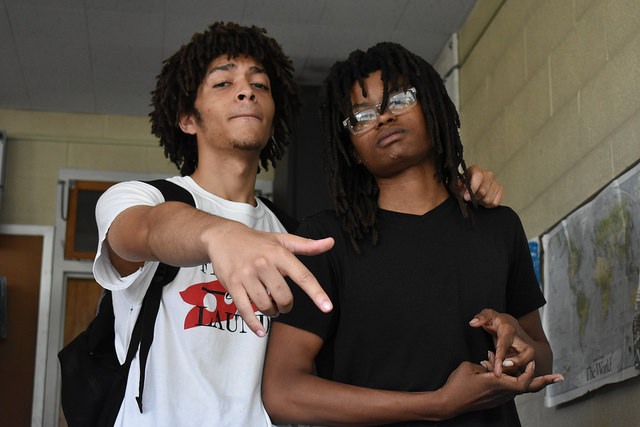
 Judicial Committee in action
Judicial Committee in action

